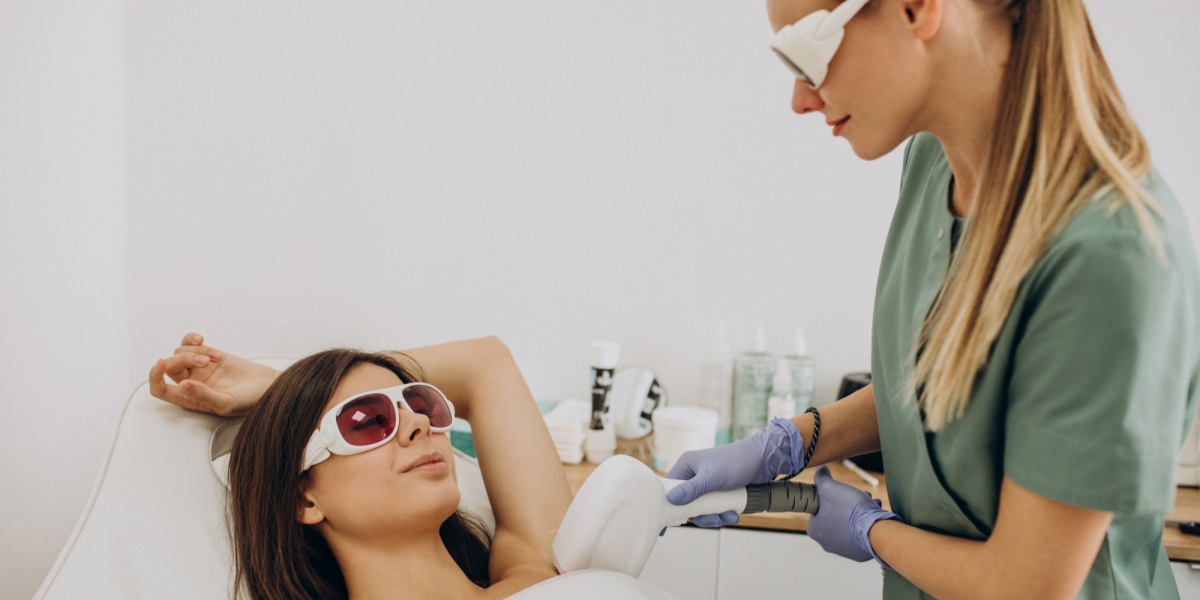Laser hair reduction, also known as laser hair removal, is a popular cosmetic procedure designed to reduce or eliminate unwanted hair using concentrated light beams. The procedure offers a long-term solution for hair removal, providing a more permanent alternative to traditional methods like shaving, waxing, or plucking. This guide explores how laser hair reduction works, its benefits, the procedure, and what to expect during and after treatment.
How Laser Hair Reduction Works
-
Principle:
- Laser hair reduction uses a concentrated beam of light, known as a laser, to target and destroy hair follicles. The laser emits light that is absorbed by the pigment (melanin) in the hair. This light is converted into heat, which damages the hair follicle and inhibits future hair growth.
-
Hair Growth Cycle:
- Anagen Phase: The active growth phase when the hair is growing. Laser hair reduction is most effective during this phase.
- Catagen Phase: The transitional phase when the hair stops growing and detaches from the follicle.
- Telogen Phase: The resting phase when the hair falls out, and the follicle remains inactive.
Laser hair reduction targets hair in the anagen phase for optimal results. Multiple sessions are usually needed to address hair in different growth phases.
The Laser Hair Reduction Procedure
-
Consultation:
- Assessment: A consultation with a qualified dermatologist or laser technician is essential to evaluate your skin type, hair color, and overall suitability for the procedure.
- Treatment Plan: A personalized treatment plan is developed based on your specific needs and goals.
-
Preparation:
- Pre-Treatment Care: Avoid sun exposure and certain medications that may increase sensitivity. Shave the treatment area to ensure the laser targets the hair follicles effectively.
-
Procedure:
- Preparation: The area to be treated is cleansed, and protective eyewear is provided to shield your eyes from the laser light.
- Laser Application: A cooling gel or device may be applied to the skin to reduce discomfort. The laser is then passed over the treatment area in a series of pulses.
- Duration: The duration of the procedure varies depending on the size of the treatment area. Smaller areas like the upper lip may take only a few minutes, while larger areas like the back or legs may take longer.
-
Post-Procedure Care:
- Aftercare Instructions: Follow post-treatment instructions provided by your technician, which may include applying soothing lotions or avoiding sun exposure.
- Recovery: Mild redness, swelling, and sensitivity are common and usually resolve within a few hours to a few days.
Benefits of Laser Hair Reduction
-
Long-Term Results:
- Permanent Reduction: Provides a long-term solution for hair reduction, with many patients experiencing a significant reduction in hair growth after multiple sessions.
-
Precision:
- Targeted Treatment: The laser targets hair follicles while leaving the surrounding skin unaffected, providing a precise and effective treatment.
-
Minimal Discomfort:
- Comfort: Modern lasers come equipped with cooling systems to minimize discomfort during the procedure.
-
Reduced Ingrown Hairs:
- Improved Skin Texture: Reduces the occurrence of ingrown hairs, which can be a common problem with other hair removal methods.
-
Time Efficiency:
- Speed: Treatment sessions are relatively quick, with smaller areas taking only minutes and larger areas requiring more time.
Risks and Considerations
-
Possible Side Effects:
- Redness and Swelling: Mild redness and swelling may occur in the treated area but usually resolve quickly.
- Pigmentation Changes: Temporary changes in skin pigmentation may occur, particularly in individuals with darker skin tones.
- Discomfort: Some discomfort or a mild sensation similar to a rubber band snap may be experienced during the procedure.
-
Consultation:
- Choosing a Provider: Select a qualified and experienced practitioner to ensure the best results and minimize risks.
-
Multiple Sessions Required:
- Treatment Plan: Multiple sessions are needed for optimal results, as hair grows in different phases and not all hairs are in the same phase at the same time.
-
Not Suitable for All Skin Types:
- Effectiveness: Laser hair reduction is most effective on individuals with light skin and dark hair. Advances in technology have improved the effectiveness for various skin and hair types, but suitability should be assessed during the consultation.
What to Expect After Treatment
-
Immediate Aftercare:
- Post-Treatment Care: Follow any aftercare instructions provided by your technician, including moisturizing the skin and avoiding sun exposure.
-
Long-Term Care:
- Sun Protection: Use sunscreen on the treated area to protect the skin and prevent pigmentation changes.
- Follow-Up Sessions: Attend follow-up appointments as recommended to achieve the best results and address any remaining hair growth.
-
Results:
- Onset: Visible results are often seen after the first few sessions, with continued improvement over subsequent treatments.
- Maintenance: Periodic maintenance sessions may be needed to address any new hair growth or to achieve desired results.
Conclusion
Laser hair reduction offers a convenient and effective solution for long-term hair removal, providing a precision-based approach to reducing or eliminating unwanted hair. By understanding the procedure, benefits, risks, and what to expect during recovery, you can make informed decisions about whether laser hair reduction is right for you. Consulting with a qualified specialist will ensure a safe and successful treatment, helping you achieve smooth, hair-free skin with minimal hassle.
